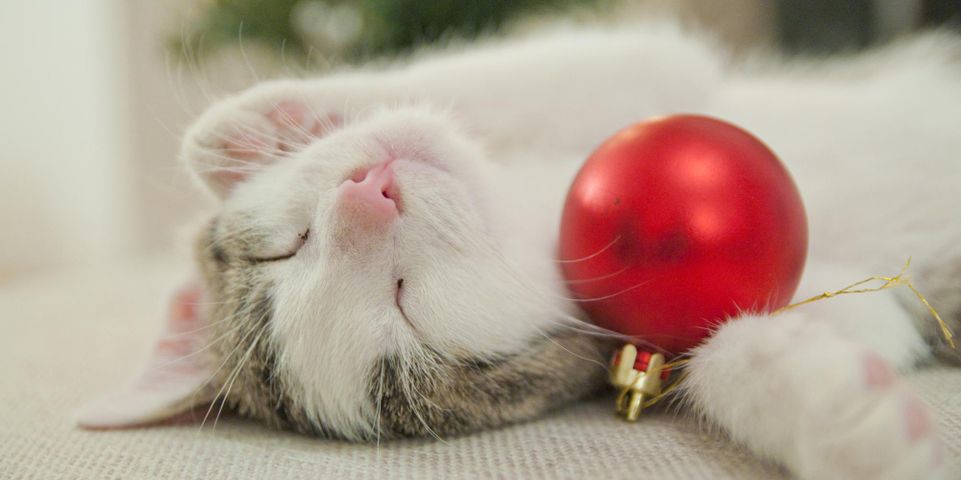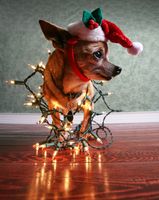
While there is plenty of joy during the holiday season, it’s important to remember that some holiday decorations and food can put the safety of your pets at risk. Fortunately, if you know what dangers to look out for, you can help ensure that your cat or dog enjoys a happy, safe, and healthy holiday. To help you achieve superior pet safety, here are five seasonal items that veterinarians encourage owners to keep away from animals.
5 Pet Safety Hazards to Avoid This Holiday Season
1. Toxic Plants
Many wintertime plants used for seasonal décor contain toxins that, when consumed by animals, can cause digestive problems and poisoning. Common offenders to look out for include poinsettias, lilies, holly, and mistletoe. Fortunately, there are pet-friendly options you can decorate with that are much safer—including Christmas cactus, autumn olive, orchids, and plastic poinsettias.
2. Holiday Food
If your pet is begging for a bite of your holiday meal, don’t oblige. Commonly served dishes and ingredients—such as turkey, onions, ham, and garlic—can be appetizing to animals, but can also cause poisoning and gastrointestinal distress. Small bones from meat may also be accidentally swallowed, causing damage and blockages throughout the digestive system. Veterinarians suggest to fill a bowl with your pet’s favorite food during dinner, so your pet can eat their food while you enjoy yours.
3. Lights
 It’s easy for animals to get tangled up in strings of lights, putting them at risk of injury or strangulation. Electrical shock is also a danger if an animal ends up chewing through a cord. To reduce the risk of danger, be sure to place all lights high enough where cats and dogs can’t reach them. Also, be sure to protect or cover cords that may be lower on the ground.
It’s easy for animals to get tangled up in strings of lights, putting them at risk of injury or strangulation. Electrical shock is also a danger if an animal ends up chewing through a cord. To reduce the risk of danger, be sure to place all lights high enough where cats and dogs can’t reach them. Also, be sure to protect or cover cords that may be lower on the ground.
4. Tree Water
Christmas tree water containers can be full of bacteria that may infect your pet if they decide to drink it. Fertilizing solutions that are placed in the water may also be toxic. To avoid these issues, opt for an artificial tree or make sure the water dish is covered securely.
5. Tree Ornaments
Balls, tinsel, and ribbons are just a few tree ornaments that attract animals—especially curious cats. If ornaments are ingested or broken, they may cause physical injury or choking—two problems that require emergency care from a trusted veterinarian. For safety purposes, it’s best to choose pet-friendly ornaments and place the more hazardous objects higher on the tree where your animal can’t reach.
Watching out for these hazards can dramatically improve your pet’s safety this holiday, but it’s still important to know who to call in the event of an emergency. Veterinarians at Avon Animal Hospital in Livingston County provide services from routine pet wellness exams to emergency surgery. To learn more about this friendly team’s approach to care, visit their website. For appointments, call (585) 226-6144.
About the Business
Have a question? Ask the experts!
Send your question

